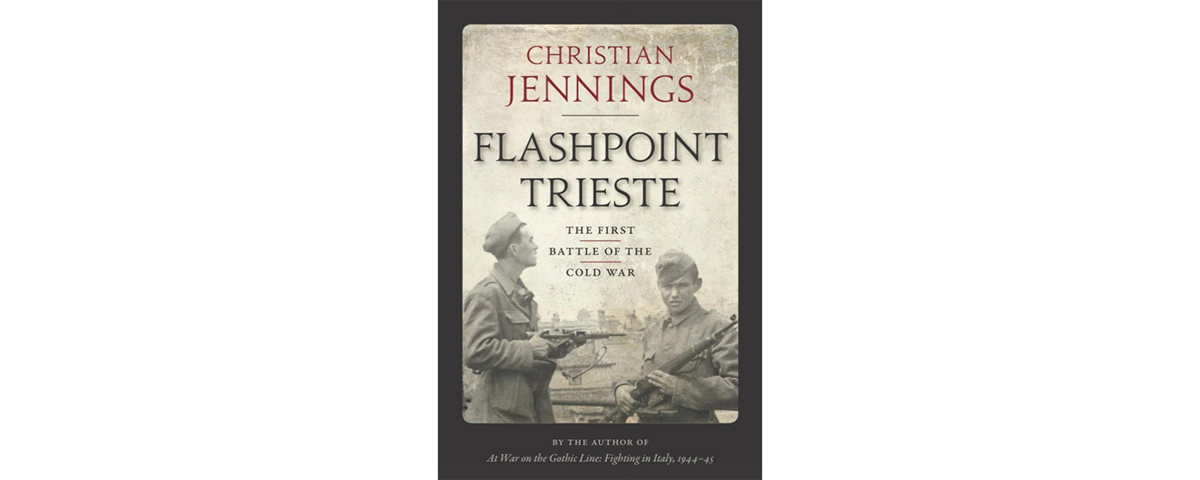Flashpoint Trieste: The First Battle of the Cold War, by Christian Jennings, ForeEdge, Lebanon, N.H., 2017, $29.95
The term “Cold War” inevitably conjures gray, grainy images of the 1950s, when the nuclear arms race between the United States and the Soviet Union was in full flight. But in his new book British writer and former French Foreign Legion member Christian Jennings posits the Cold War actually began in May 1945 (coinciding with war’s end in Europe) in the Italian city of Trieste.
That Trieste, an important deepwater trading port for more than three millennia, became a flash point for the budding conflict was due to its strategic location at the head of the Adriatic Sea, near the borders of Italy, Austria and Yugoslavia. As World War II ground to a halt, the port lay within reach of hundreds of thousands of Allied, Italian, German, Russian and Yugoslav troops, all of whom had a vested interest in controlling it, and all of whom “circled each other like nervous cats,” Jennings writes.
The resulting political and military maneuvering complicated the regional situation exponentially. In the midst of this tangled drama was the unpredictable Yugoslav communist leader Josip Broz Tito, who was intent on playing all sides against the middle in dogged pursuit of his own nakedly autocratic ambitions. In a region that represented “some of the most strategically vital territory in Europe,” it was a standoff exhibiting “every identifying hallmark of the coming struggle between East and West for the next 50 years,” the author writes. “It ranged from the sublime to the ridiculous to the lethal.”
Jennings, the author of six previous nonfiction works, unravels the tale largely through the eyes of more than a dozen disparate men and women from the seven nations that became entangled in the tailwinds of World War II in Trieste. In addition to Tito, the cast of characters ranges from Nazi generals to American and British intelligence operatives to a pair of opposing Italian women—one a communist partisan, the other a dedicated fascist.
Framing his narrative around the diverse experiences of such individuals, Jennings gives his story a vivid immediacy. His exploration of how the earliest foundations of the post–World War II order were laid in Europe is an intriguing dive into the roots of the Cold War—a conflict that, despite its name, has long featured overlapping warm currents that may well heat up in the near future.
—Charles Vinch

